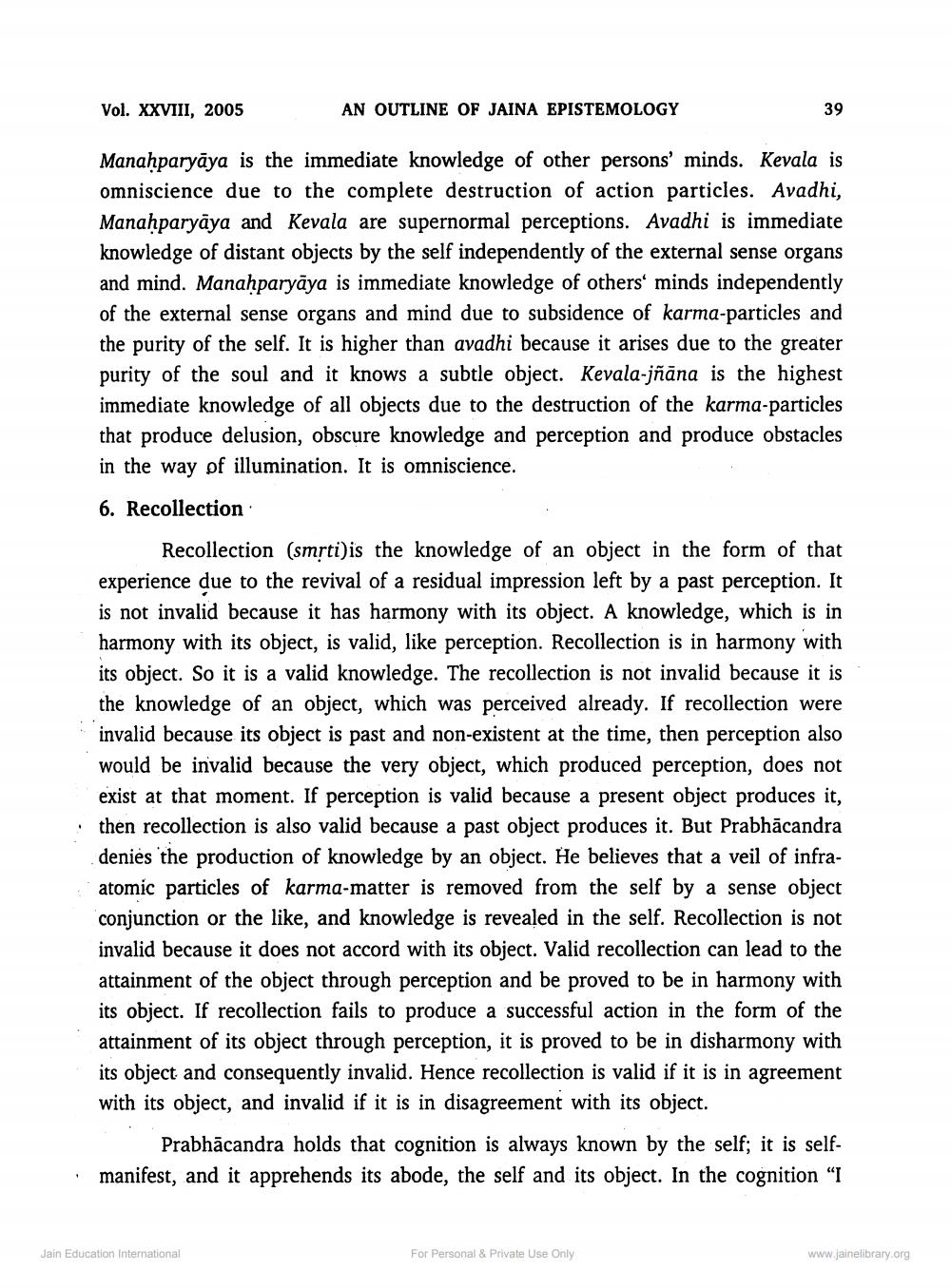________________
Vol. XXVIII, 2005
AN OUTLINE OF JAINA EPISTEMOLOGY
39
Manahparyāya is the immediate knowledge of other persons' minds. Kevala is omniscience due to the complete destruction of action particles. Avadhi, Manahparyāya and Kevala are supernormal perceptions. Avadhi is immediate knowledge of distant objects by the self independently of the external sense organs and mind. Manahparyāya is immediate knowledge of others' minds independently of the external sense organs and mind due to subsidence of karma-particles and the purity of the self. It is higher than avadhi because it arises due to the greater purity of the soul and it knows a subtle object. Kevala-jñāna is the highest immediate knowledge of all objects due to the destruction of the karma-particles that produce delusion, obscure knowledge and perception and produce obstacles in the way of illumination. It is omniscience.
6. Recollection
Recollection (smrti)is the knowledge of an object in the form of that experience due to the revival of a residual impression left by a past perception. It is not invalid because it has harmony with its object. A knowledge, which is in harmony with its object, is valid, like perception. Recollection is in harmony with its object. So it is a valid knowledge. The recollection is not invalid because it is the knowledge of an object, which was perceived already. If recollection were invalid because its object is past and non-existent at the time, then perception also would be invalid because the very object, which produced perception, does not
exist at that moment. If perception is valid because a present object produces it, · then recollection is also valid because a past object produces it. But Prabhācandra
denies the production of knowledge by an object. He believes that a veil of infraatomic particles of karma-matter is removed from the self by a sense object conjunction or the like, and knowledge is revealed in the self. Recollection is not invalid because it does not accord with its object. Valid recollection can lead to the attainment of the object through perception and be proved to be in harmony with its object. If recollection fails to produce a successful action in the form of the attainment of its object through perception, it is proved to be in disharmony with its object and consequently invalid. Hence recollection is valid if it is in agreement with its object, and invalid if it is in disagreement with its object.
Prabhācandra holds that cognition is always known by the self; it is selfmanifest, and it apprehends its abode, the self and its object. In the cognition “I
Jain Education International
For Personal & Private Use Only
www.jainelibrary.org




